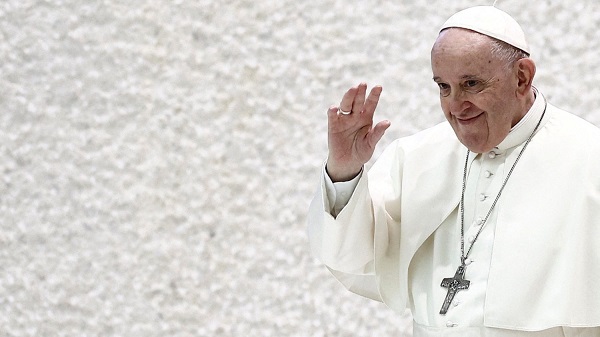The Pope’s visits offer him a good opportunity to see many of the woes that afflict his burgeoning flock across the continent.
According to Pew, a reputable research institution based in America, the share of the world Christians who live in Sub-Sahara Africa will surge to 42 per cent by 2060 up from 26 per cent in 2015.
Without this demographic fueled expansion in Africa, Christianity would be destined to fall rather swiftly behind Islam as the world’s most popular religion.
Pew predicts that by 2060, Muslims numbers will be 70 per cent above 2015 levels, whereas the Christian flock will have risen by just 34 per cent.
As a net result, Pew reckons Christianity will make up 32 per cent of the world’s population and Muslims just one percentage point less.
Looking at the important position of Africa to the Christian faith, it comes with no surprise that the continent has been blessed by papal visits five times since Pope Francis was elected as the head of the Catholic Church in 2013.
Though there are political and religious conflicts, if there is any reason for the Pope to feel uncomfortable about Africa, definitely not in the realm of personal security.
The sheer size of the African Catholic Church and the assertiveness of African prelates when it comes to ideological and doctrinal issues is probably what will make the Pope uncomfortable about Africa.
When expressing views on religious conflicts in parts of the continent, the Pope has always stressed the primacy of economic factors and has refused to engage in Christian-Moslem name-calling, a stark contrast with his predecessor, Pope Benedict, who provoked a storm in 2006 with a speech that unintentionally seemed to link Islam with a propensity for violence.
As Jimmy Burns, a biographer of Pope Francis put it, “Francis is convinced that environmental damage, inequality and competition for resources are the factors behind religious fundamentalism of any kind.
” Few years back, the Pope seemed to be re-echoing his fair credentials in matters of Christian-Moslem relations by giving a cardinal’s hat to Arc-Bishop Michael Fitzgerald, a British expert in Islam, who had earlier been demoted by Pope Benedict, apparently for being too emollient.
Nothing to fear
Arguments based on economics as a cause of interstate conflicts may resonate well in academia, but not with all the leading members of the Catholic Church, especially when it comes to those from Africa who frequently suffer attacks from insurgents linked to Islamic fundamentalism.
For years, doctrinal issues such as women, celibacy, sexuality, marriage, clerical and hierarchical issues have been a fault line in the modern Christian Church. Most of these sensitive ideological issues play out on the continent most of the time.
Elizabeth Foster of the Tufts University, who wrote the book, “African Catholic”, blamed the lively and “stubborn” Church in Africa on past colonial policies.
To her, the colonial authorities overcame their secular principles and helped the church in a burst of missionary zeal, building schools and other human development facilities.
This created a generation of well-educated and articulate clerics who did not always take the line that was expected by the Church and even the state.
Among the most powerful of the African born prelates is Cardinal Robert Sarah of Guinea who has endeared himself to the conservative critics of the Pope by describing Islamist terrorism and liberal ideas about reproduction and sexuality as co-equal threats to the integrity of the Catholic faith.
This notwithstanding, he is more or less loyal to Pope Francis just as the one from our soil, Cardinal Peter Appiah Turkson, the Vatican’s Point-man on development whose thinking is more in line with Pope Francis.
With this, there is nothing to create any discomfort for the leadership of the Christian faith when it comes to Africa.
Pope Francis has proved this with his frequent visits to the continent.
The writer is with the Institute of Current Affairs and Diplomacy (ICAD).
E-mail: Lawmat2014@gmail.com

